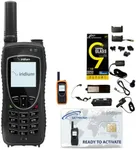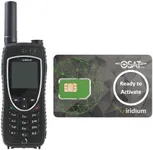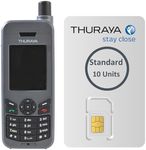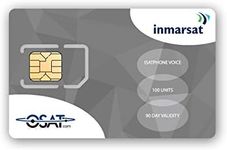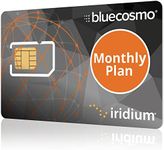Buying Guide for the Best Satellite Phone Provider
Choosing the right satellite phone provider is crucial for ensuring reliable communication, especially in remote areas where traditional cell service is unavailable. Satellite phones are essential for adventurers, emergency responders, and anyone who needs to stay connected in isolated locations. To make an informed decision, it's important to understand the key specifications and features that differentiate satellite phone providers. This guide will help you navigate these specifications and choose the best provider for your needs.Coverage AreaCoverage area refers to the geographical regions where the satellite phone provider offers service. This is important because it determines where you can make and receive calls. Providers typically offer global, regional, or specific country coverage. If you plan to travel internationally or to remote areas, global coverage is essential. For those who need service in a specific region, a provider with strong regional coverage may suffice. Assess your travel plans and choose a provider that offers reliable service in the areas you will be visiting.
Network TypeNetwork type indicates the kind of satellite network the provider uses, such as geostationary (GEO) or low Earth orbit (LEO) satellites. GEO satellites stay in a fixed position relative to the Earth, providing consistent coverage over large areas, but may have higher latency. LEO satellites orbit closer to the Earth, offering lower latency and better performance for voice and data, but may require a clear line of sight to multiple satellites. Consider your communication needs and the typical environment where you'll use the phone to choose the appropriate network type.
Voice and Data ServicesVoice and data services refer to the types of communication options available, such as voice calls, text messaging, and internet access. This is important because it affects how you can stay connected. Some providers offer only voice services, while others provide both voice and data. If you need to send emails, browse the internet, or use other data-intensive applications, choose a provider that offers robust data services. For basic communication needs, a voice-only provider may be sufficient.
Reliability and UptimeReliability and uptime measure how consistently the provider's network is available and functioning. This is crucial for ensuring you can communicate when you need to, especially in emergencies. Providers with higher reliability and uptime percentages are more dependable. Look for providers with a strong track record of network stability and minimal downtime. If you require constant connectivity, prioritize providers known for their reliability.
Customer SupportCustomer support refers to the assistance provided by the satellite phone provider, including technical support, troubleshooting, and general inquiries. Good customer support is important for resolving issues quickly and ensuring a smooth user experience. Providers with 24/7 customer support and multiple contact options (phone, email, chat) are preferable. Consider your comfort level with technology and the likelihood of needing assistance when choosing a provider with the appropriate level of support.
Plan FlexibilityPlan flexibility refers to the variety of service plans offered by the provider, including contract length, pricing, and usage options. This is important because it allows you to choose a plan that fits your specific needs and usage patterns. Some providers offer pay-as-you-go plans, monthly subscriptions, or long-term contracts. If your usage is sporadic, a pay-as-you-go plan may be more cost-effective. For regular use, a monthly or annual plan might be better. Evaluate your expected usage and select a provider with plans that match your needs.

